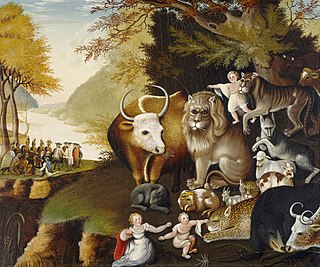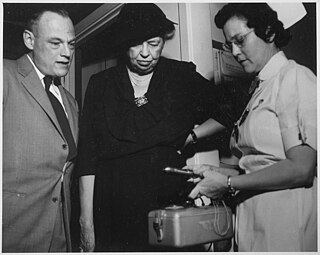Michael J. Pollard was an American actor. He is best known for his role as C.W. Moss in the film Bonnie and Clyde (1967), which earned him critical acclaim along with nominations for an Academy Award, a British Academy Film Award, and two Golden Globe Awards.

Seabiscuit is a 2003 American sports film co-produced, written and directed by Gary Ross and based on the best-selling 1999 non-fiction book Seabiscuit: An American Legend by Laura Hillenbrand. The film is loosely based on the life and racing career of Seabiscuit, an undersized and overlooked Thoroughbred race horse, whose unexpected successes made him a hugely popular media sensation in the United States during the Great Depression. At the 76th Academy Awards, Seabiscuit got 7 nominations, including Best Picture. The film was Ross' second film on-screen collaboration with Maguire and Banks, who both previously worked in Spider-Man, and with Maguire and Macy, who both previously worked in Pleasantville.
William Allen may refer to:
John Pollard may refer to:

Edward Hicks was an American folk painter and distinguished religious minister of the Society of Friends. He became a Quaker icon because of his paintings.
The Religious Society of Friends began as a movement in England in the mid-17th century in Lancashire. Members are informally known as Quakers, as they were said "to tremble in the way of the Lord". The movement in its early days faced strong opposition and persecution, but it continued to expand across the British Isles and then in the Americas and Africa.

Bootham School is an independent Quaker boarding school, on Bootham in the city of York in England. It accepts boys and girls ages 3–19, and had an enrolment of 605 pupils in 2016. There is also Bootham Junior School down the road commonly known as BJS.

Quakers, also called Friends, belong to a historically Christian (Protestant) denomination known formally as the Religious Society of Friends. Members of the various Quaker movements are all generally united by their belief in the ability of each human being to experientially access the light within, or "that of God in every one".
Quakers in North America constitute approximately 21% of Quakers worldwide (2012), according to the online Quaker Information Center.

The "Holy Experiment" was an attempt by the Religious Society of Friends, also known as Quakers, to establish a community for themselves and other persecuted religious minorities in what would become the modern state of Pennsylvania. They hoped it would show to the world how well they could function on their own without any persecution or dissension.

William Smith was the first provost of the College of Philadelphia, which became the University of Pennsylvania. He was also the founder of Washington College in Chestertown Maryland, and St. John's College in Annapolis, Maryland.
William Pollard (1828–1893) was an English Quaker writer and recorded minister. He was a prominent advocate of quietist Quaker theology, during a period of theological dispute within the Society of Friends.
Events from the year 1654 in Ireland.
Pollard is a surname. Notable people with the surname include:

William Grosvenor Pollard (1911–1989) was an American physicist and an Episcopal priest. He started his career as a professor of physics in 1936 at the University of Tennessee. In 1946 he championed the organization of the Oak Ridge Institute of Nuclear Studies (ORINS). He was its executive director until 1974. He was ordained as a priest in 1954. He authored and co-authored a significant amount of material in the areas of Christianity and Science and Religion found in books, book chapters, and journal articles. He was sometimes referred to as the "atomic deacon".

William Penn was a writer, early member of the Religious Society of Friends (Quakers), and founder of the English North American colony the Province of Pennsylvania. He was an early advocate of democracy and religious freedom, notable for his good relations and successful treaties with the Lenape Native Americans. Under his direction, the city of Philadelphia was planned and developed. Philadelphia was planned out to be grid-like with its streets and be very easy to navigate, unlike London where Penn was from. The streets are named with numbers and tree names. He chose to use the names of trees for the cross streets because Pennsylvania means "Penn's Woods".
Robert Yeamans or Yeomans was an English merchant of Bristol who in early 1643 plotted with other Royalists to aid in the capture of Bristol by the Royalists. The plot was discovered by the parliamentary governor Nathaniel Fiennes and Yeomans was tried as a traitor, found guilty by court-martial and executed.

The Quaker Oats Company, known as Quaker, is an American food conglomerate based in Chicago. It has been owned by PepsiCo since 2001.
This page is based on this
Wikipedia article Text is available under the
CC BY-SA 4.0 license; additional terms may apply.
Images, videos and audio are available under their respective licenses.








